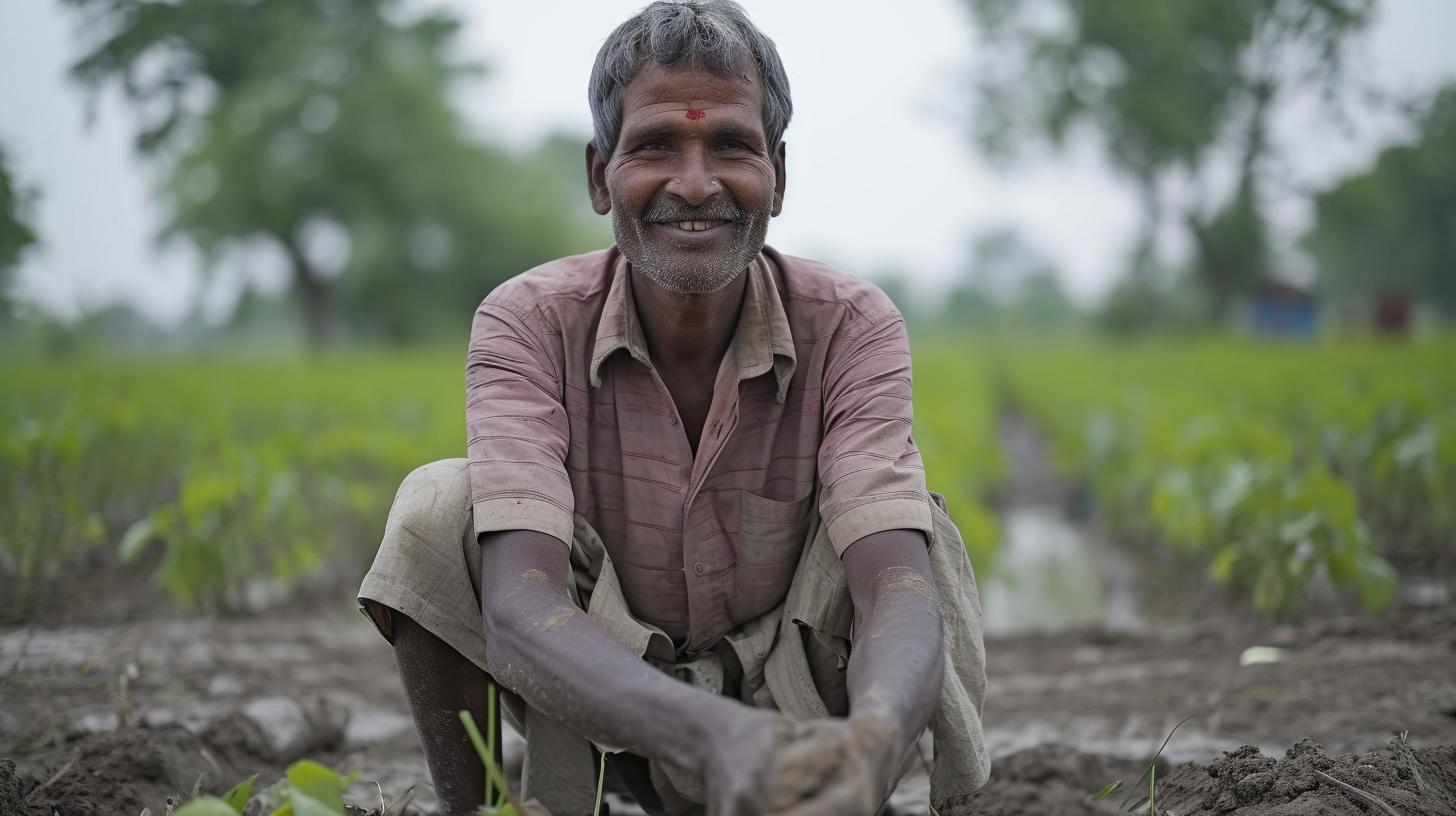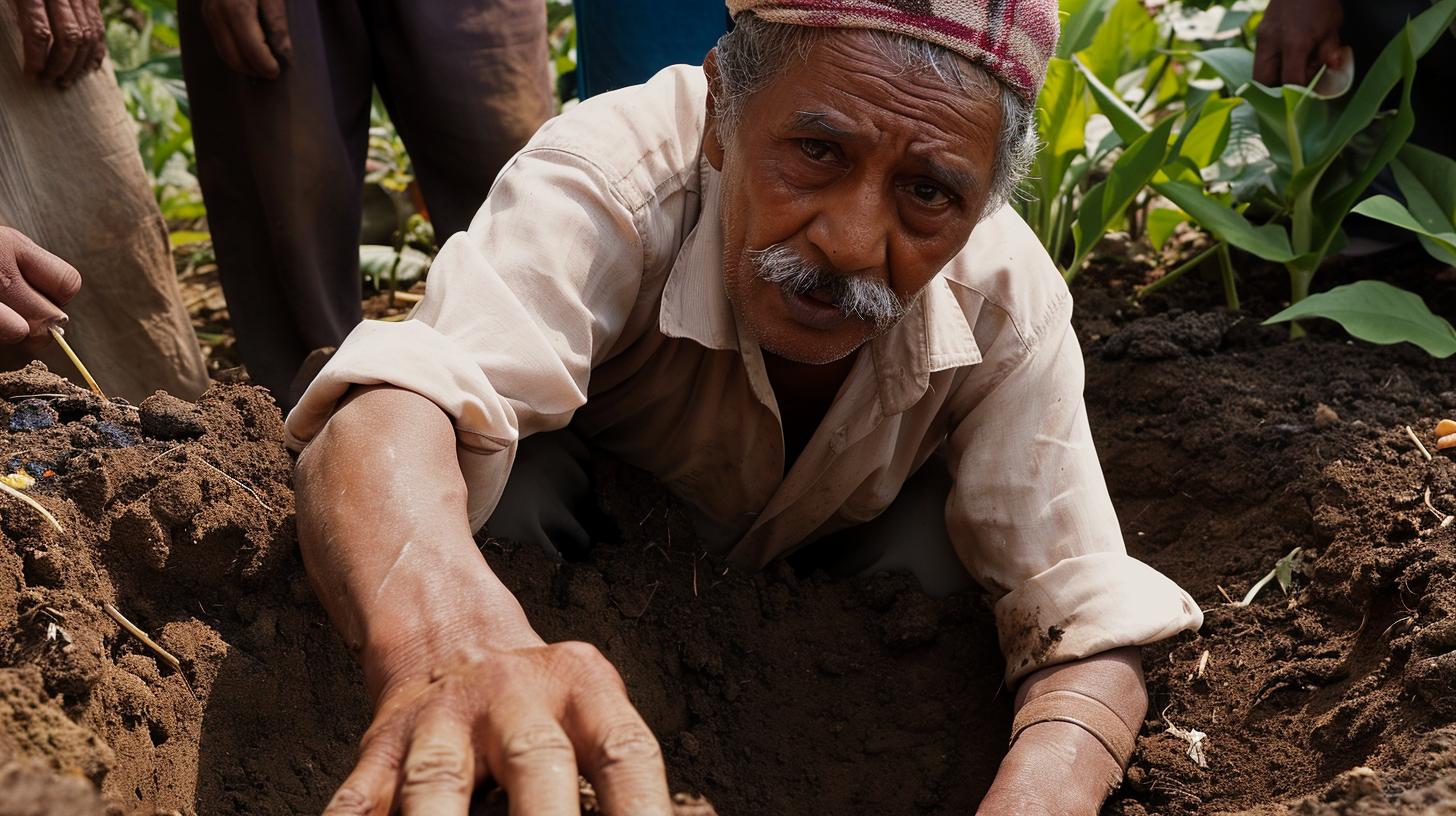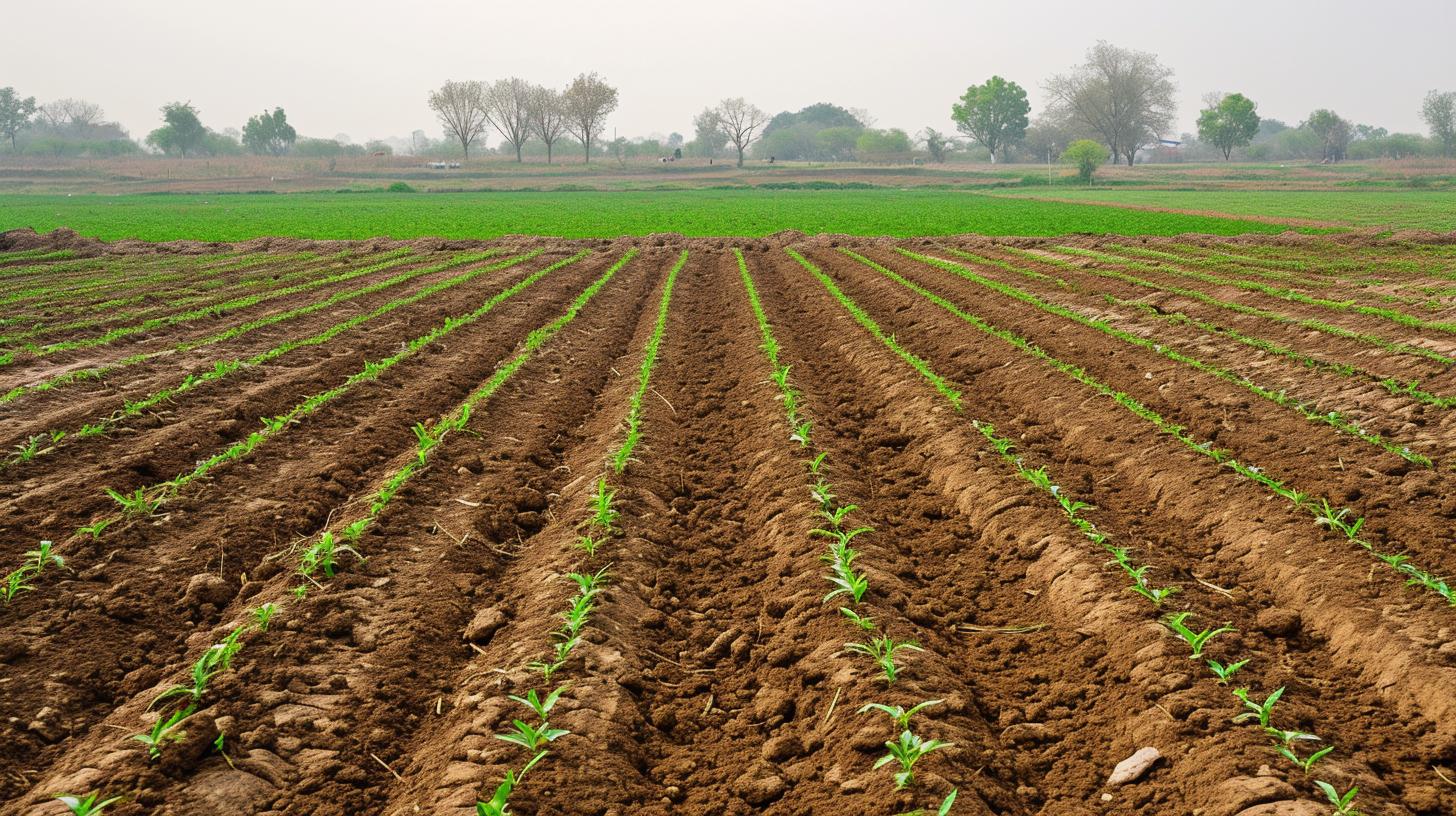
Bihar, a state in eastern India, is renowned for its agricultural significance in the country. The fertile land and favorable climate make agriculture the backbone of Bihar’s economy. In this section, we will delve into the importance of soil health in Bihar’s agricultural sector and how it impacts the overall output of crops.
The rich agricultural heritage of Bihar is closely tied to the health of its soil. With diverse soil compositions and varying factors affecting soil quality, understanding the dynamics of Bihar’s soil is crucial for sustainable farming practices. As we explore further, we will discuss the different types of soils found in Bihar and the specific factors that influence their quality.
Moreover, the impact of soil health on agricultural output cannot be understated. The fertility and nutrient levels of the soil directly affect crop yields and overall production. Farmers in Bihar face numerous challenges when dealing with poor soil health, including reduced productivity and increased input costs. In this article, we will examine these challenges in detail and their implications for agriculture in Bihar.
Understanding Bihar’s Soil Composition
Bihar is known for its rich agricultural heritage and is often referred to as the “breadbasket of India” due to its significant contribution to the country’s food production. The state’s agricultural sector heavily relies on the health and fertility of its soil for successful crop cultivation. Understanding Bihar’s soil composition is crucial in appreciating the agricultural landscape and identifying opportunities for improvement.
Description of Soil Types
Bihar’s soil composition consists mainly of three types: old alluvial soil, new alluvial soil, and red or laterite soil. Old alluvial soil is found in areas adjacent to riverbanks, comprising clayey and loamy characteristics suitable for paddy cultivation.
New alluvial soil is prevalent in regions with low-lying flood plains, offering a mix of sand, silt, and clay ideal for wheat and maize cultivation. Red or laterite soils are generally found in upland regions, characterized by their well-drained nature but lack of fertility, posing challenges for crop growth.
Factors Affecting Soil Quality
Several factors contribute to the quality of soil in Bihar, including natural processes such as erosion, weathering, and chemical leaching. Human activities like deforestation, excessive use of chemical fertilizers and pesticides, as well as improper irrigation practices also impact soil health. These factors can lead to issues such as soil erosion, compaction, nutrient depletion, and reduced microbial activity, ultimately affecting agricultural productivity.
Moreover,
Impact of Soil Health on Bihar’s Agricultural Output
Soil health plays a crucial role in determining the agricultural output of Bihar, a state known for its significant contribution to India’s agricultural sector. The types of soil found in Bihar include fertile alluvial soil, red and yellow soil, as well as laterite soil. However, factors such as erosion, improper land use practices, and inadequate irrigation have led to degradation of Bihar soil health over the years.
The impact of poor soil health on Bihar’s agricultural output is substantial. Nutrient-deficient soils lead to reduced crop yields and lower quality produce. Farmers face challenges such as decreased profitability, limited crop choices, and increased susceptibility to pests and diseases. Moreover, the reliance on chemical fertilizers to compensate for poor soil health can contribute to environmental pollution and long-term damage to the ecosystem.
To address these challenges, it is essential for farmers in Bihar to adopt best practices that focus on improving soil health. There are several measures that farmers can take to enhance the quality of their soils, including crop rotation, organic farming methods, and proper water management practices. Additionally, sustainable agricultural practices such as conservation tillage and agroforestry can help protect Bihar’s soil from further degradation.
By prioritizing strategies aimed at enhancing Bihar soil health, farmers can work towards increasing agricultural productivity while promoting environmental sustainability. Collaboration between government agencies, non-profit organizations, and local communities is crucial for implementing effective soil conservation programs and policies. Additionally, educating farmers on the importance of maintaining healthy soils will be key in ensuring the long-term success of Bihar’s agricultural sector.

Government Initiatives for Soil Health in Bihar
The state of Bihar is heavily reliant on agriculture, with a significant portion of its population engaged in farming. Recognizing the crucial role of soil health in agricultural productivity, the government has implemented various initiatives to improve and maintain soil quality across the state. The keyword ‘Bihar soil health’ has become a focal point for policymakers, driving efforts to support farmers and preserve the long-term sustainability of agricultural practices.
One such initiative is the Soil Health Card Scheme, which aims to assess the health of soils in Bihar and provide personalized recommendations to farmers. Through this program, soil samples are collected, analyzed, and used to generate Soil Health Cards that detail nutrient deficiencies and necessary remedial measures. By empowering farmers with this information, the scheme helps optimize fertilizer use, enhance crop yield, and reduce input costs.
In addition to the Soil Health Card Scheme, Bihar’s government has also prioritized organic farming as a means of improving soil health. Through subsidies, training programs, and capacity-building initiatives, farmers are encouraged to adopt organic practices that contribute to better soil structure and fertility. Furthermore, there are efforts to promote sustainable irrigation methods and advocate for crop diversification to mitigate the impact of monoculture on soil degradation.
| Government Initiatives | Impact |
|---|---|
| Soil Health Card Scheme | Optimizes fertilizer use; Reduces input costs |
| Organic Farming Promotion | Improved soil structure and fertility; Enhances sustainability |
| Sustainable Irrigation Methods & Crop Diversification | Mitigates impact of monoculture on soil degradation; Ensures water conservation |
These initiatives represent substantial progress towards addressing the challenges facing Bihar’s agricultural sector. As a result of these government efforts focused on enhancing Bihar’s soil health management practices; local farmers are better equipped with resources and knowledge aimed at improving their livelihoods while preserving the environment for future generations.
Best Practices for Maintaining Soil Health in Bihar
Maintaining soil health is crucial for the sustainable growth of agriculture in Bihar. With the majority of the state’s population engaged in farming, it is imperative to adopt best practices that can improve and preserve the quality of Bihar soil. By implementing proper techniques and measures, farmers can enhance soil fertility, increase crop yield, and contribute to the overall agricultural productivity of the state.
Tips for Farmers to Improve Soil Health
Farmers in Bihar can take several steps to improve the health of their soil. One effective method is crop rotation, where different crops are grown in succession on the same piece of land. This practice helps prevent depletion of specific nutrients from the soil and reduces the risk of pest infestations.
Additionally, farmers can use organic fertilizers and compost to enrich the soil with essential nutrients without harmful chemicals. Testing the pH levels of the soil regularly and adjusting it as needed is also important for maintaining soil health.
Sustainable Agricultural Practices to Protect Soil
Implementing sustainable agricultural practices is vital for preserving soil health in Bihar. Conservation tillage, a method that minimizes soil disturbance during planting, can help retain moisture and prevent erosion. Another approach is agroforestry, which involves growing trees alongside crops to improve soil structure, provide shade, and create a diverse ecosystem. Furthermore, practicing water management techniques such as drip irrigation or rainwater harvesting can reduce water runoff and erosion while promoting healthier soils.
Adopting Modern Techniques for Soil Management
In addition to traditional methods, modern technological advancements can play a significant role in maintaining Bihar’s soil health. Embracing precision agriculture allows farmers to tailor their farming practices based on specific conditions within their fields. The usage of GPS-guided machinery aids in precise seeding, fertilizing, and pesticide application, minimizing wastage while maximizing efficiency. Embracing these advanced techniques not only benefits the environment but also ensures better retention of nutrients in the soil.
By adopting these best practices for maintaining Bihar’s soil health, farmers can contribute significantly to improving agricultural output while safeguarding precious natural resources for future generations.
Case Studies of Successful Soil Health Improvement in Bihar
Bihar, located in the eastern part of India, is an agricultural state that heavily relies on its soil for crop production. The soil health in Bihar plays a crucial role in determining the success of its agricultural output. With over 75% of the state’s population engaged in agriculture, the significance of maintaining healthy soils cannot be overstated.
Bihar’s soil composition consists mainly of alluvial soil, red and black soils, and laterite soil. The varying composition of these soils presents unique challenges and opportunities for farmers. Factors such as waterlogging, erosion, salinity, and alkalinity can significantly impact the quality of the soil, leading to reduced crop yields and productivity.

One successful case study of soil health improvement in Bihar is the adoption of sustainable farming practices by a community in the Gaya district. By implementing organic farming methods, crop rotation techniques, and using natural fertilizers, farmers were able to rejuvenate their farmland’s soil health. This resulted in increased yields and improved overall farm sustainability. These practices not only improved the productivity of their land but also contributed to environmental conservation and biodiversity.
Another noteworthy case study involves a farmer in the Muzaffarpur district who successfully restored his degraded soil through agroforestry practices. By planting trees alongside his crops, he effectively managed soil erosion, enhanced nutrient retention, and increased moisture content in the soil. As a result, he not only saw improvements in his crop yield but also experienced an overall enhancement of his farm’s ecosystem.
These case studies serve as valuable examples for other farmers in Bihar looking to improve their own soil health. They highlight the importance of adopting sustainable agricultural practices that not only benefit crop production but also contribute to long-term soil conservation efforts.
| Case Study | Location | Key Practices | Outcomes |
|---|---|---|---|
| Community Farming Initiative | Gaya District | Organic farming methods, crop rotation techniques, natural fertilizers | Increased yields, improved farm sustainability |
| Agroforestry Success Story | Muzaffarpur District | Agroforestry practices, tree planting alongside crops | Improved nutrient retention, reduced erosion, enhanced ecosystem |
Future Outlook for Bihar’s Soil Health
The future outlook for Bihar’s soil health is crucial for the sustainable development of the state’s agricultural sector. With a rapidly growing population and increasing pressure on land resources, the need to prioritize and implement effective soil conservation and restoration measures has never been more pressing.
To ensure a healthy future for Bihar’s soil, it is essential to address potential challenges and identify opportunities for improvement. Some of the key factors that will shape the future of Bihar’s soil health include:
- Climate Change: The impact of climate change on Bihar’s soil health cannot be understated. Erratic weather patterns, increased temperatures, and extreme weather events can all contribute to soil erosion, nutrient depletion, and decreased fertility. Implementing climate-resilient agricultural practices will be crucial in mitigating these effects.
- Technology and Innovation: Advancements in agricultural technologies and innovative farming practices can play a significant role in improving Bihar’s soil health. From precision agriculture techniques to using bio-fertilizers and organic farming methods, embracing new technologies can help conserve soil quality for future generations.
- Policy Support: The government’s policies and support for sustainable land use practices and soil conservation efforts will be instrumental in shaping the future of Bihar’s soil health. Continued investment in programs aimed at promoting better land management, preventing deforestation, enforcing regulations on pesticide use, and incentivizing sustainable agriculture will be vital for long-term success.
Looking ahead, it is essential to recognize that sustaining Bihar’s agricultural productivity depends on nurturing the health of its soils. Collaborative efforts from farmers, policymakers, researchers, and agribusinesses will be necessary to create a brighter future for Bihar’s agricultural landscape while safeguarding its precious natural resources.
Conclusion
In conclusion, the state of Bihar’s soil health plays a crucial role in determining the success and sustainability of its agricultural sector. As discussed throughout this article, the composition and quality of soil in Bihar directly impact crop yield and overall agricultural output. The challenges faced by farmers due to poor soil health are significant, but there is also great potential for improvement and sustainable management.
The government’s initiatives to address soil health in Bihar are commendable, with various programs and policies aimed at conservation and restoration. However, it is clear that a collaborative effort between government authorities, agricultural experts, researchers, and local communities is needed to achieve long-term improvement in Bihar soil health.
Moving forward, it is imperative for all stakeholders to prioritize sustainable agricultural practices that protect soil health. Farmers can make a significant impact by implementing best practices for maintaining soil health while also learning from successful case studies within their own communities.
By doing so, Bihar can look toward a future where its agricultural sector flourishes due to healthy and well-managed soils. The state has enormous potential for growth and productivity if the issue of Bihar soil health is addressed effectively as part of a holistic approach to agriculture development.






